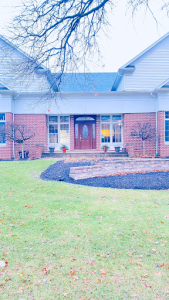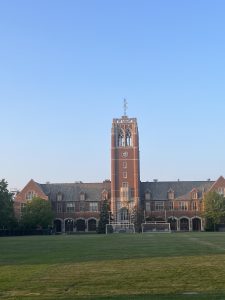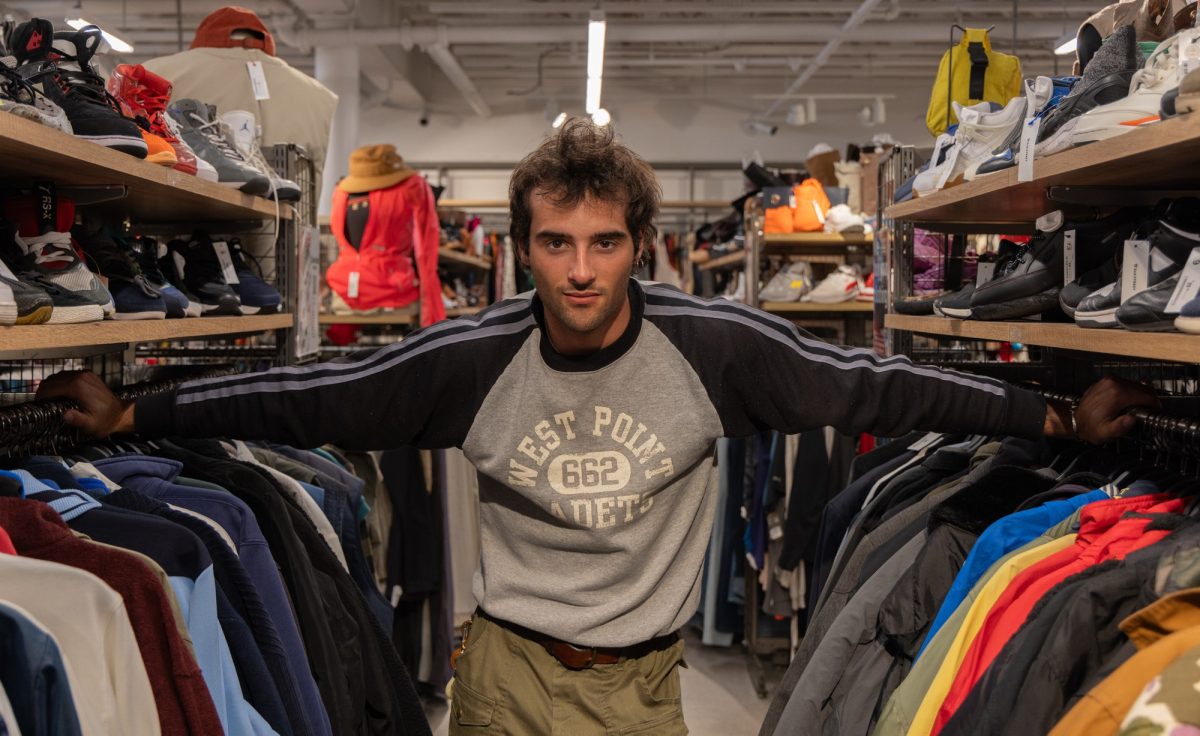Since 1886 , John Carroll University (originally St. Ignatius College) has been educating students in the Jesuit tradition with the help of Jesuits. In recent years, though, the University, like all schools, is doing so with far fewer Jesuits because of the national decline in Jesuits available or ministry. This raises questions regarding how JCU is maintaining its Jesuit mission and identity. Faculty members, staff and current Jesuits at JCU shared their answers to this question which emphasize the role of lay people now often filling the roles that Jesuits had formally played at JCU.
The Jesuits (Society of Jesus) are a Catholic religious order founded by St. Ignatius Loyola in the 16th century. Jesuits are known for their commitment to education, missionary work and social justice. They undergo extensive training, education and take vows of poverty, chastity, and obedience. At JCU, this identity means a focus on the liberal arts, ethics and spirituality in a community that cares for you as an individual (following the Jesuit philosophy of cura personalis).
The Schell House Jesuit Community at JCU is home to nine Jesuits, three of whom work primarily across the street at the Gesu Parish. Compare this to 1950 when there were 38 Jesuits on campus and in 2004 when there were 12 at JCU and three at Gesu.

The decrease in Jesuits is not unique to JCU; it’s occurring globally, mostly due to fewer people entering the order vocations.
In the 1960s, the Jesuits numbers peaked at about 36,000 members worldwide. In 2008, their numbers were nearly half that–19,200. As of Jan. 2022, there are only 14,439 Jesuits in the world; Canada and the United States combine for only 2,046. Another one of the 27 Jesuit universities, Boston College, saw its Jesuit community decrease by about 100 since 1965. In 2023, Xavier University has 13 Jesuits. Simply put, the decline in Jesuits is a reality at all Jesuit institutions because there are fewer Jesuits to go around.
Fr. James Bretzke, S.J., a professor in the Department of Theology and Religious Studies at JCU, told The Carroll News that these Jesuits’ numbers are not going to bounce back to what they were in the ’60s and offered reasons why they have decreased.
“Over the last 100 years, Catholic families are getting smaller,” said Bretzke, and “the [Jesuit] way of life has become less attractive to people.”
Dr. Edward P. Hahnenberg, Breen Chair in Catholic Theology at JCU, agrees with Bretzke.
“[In the past 50 years] you do see a drop off in the overall numbers of those going into the ordained priesthood [and] religious orders,” said Hahnenberg, “ I think that there are more powerful forces at work–broader cultural shifts.”
“Life is always about change. And so we have to adapt,” said Hahnenberg.

JCU cannot rely on the Jesuits as it did in days past; the mission must be carried out by others or JCU’s identity as a Jesuit institution is at risk.
These cultural shifts are numerous, both inside and outside of the Catholic Church. Dr. Paul V. Murphy, a professor of history and the Director of the Institute of Catholic Studies at JCU, emphasized that there is competition for the shrinking number of Jesuits.
“There are a lot of [Jesuits] who would rather teach at one of the high schools [rather] than at the college level, or they’d like to do…social justice work. University work isn’t the only game in town,” said Murphy.
The Jesuit tradition of JCU lives on with fewer Jesuits through the work of dedicated lay people at the University–people who are not ordained priests or members of the Society of Jesus but are still committed to the faith. After the Second Vatican Council, there were major shifts in the Catholic Church, one of which was the call of the laity to holiness.
Murphy said, “I think a lot of people decided, well, why do I have to become a celibate priest in order to do good in the world or for the church.’”
To Bretzke and Murphy, JCU can maintain its Jesuit mission and identity by relying on lay faculty and staff.
“The Jesuits are trying to foster the work of lay people in the universities, who understand Ignatian spirituality, who understand the Jesuit mission,” said Murphy, “So that even if the number of Jesuits were to go down, you’d still have loads of people here who could carry that forward.”
Bretzke stated that to maintain a religious identity, “you [need to ensure] that the people who are running the school are well versed in the spirituality of the religious congregation that is sponsoring the schools.”
Fr. Tom Pipp, S.J., Director of Ignatian Formation and Rector of Jesuit Residence, also recognizes the importance and power of the laity.
“We just need the help of many lay people to do God’s work in the world. I think that’s a really positive thing,” Pipp said, “[At JCU] there are many people the mission can be shared with, and they can carry it out. You know that faith is alive here.”
This is where the work of individuals like Dr. Edward Peck, Vice President of University Mission and Identity, becomes ever more pertinent.
Peck stated that his job, in essence, is to, “[P]ut in place systems, resources and opportunities for our faculty and staff to understand the Ignatian heritage and how it applies to their work.” With the current state of Jesuits at JCU, Peck is confident that the university will uphold its traditions and values.
Peck said, “Although we have fewer Jesuits, I think we have more people in the University concerned about the mission. Because they see they have a responsibility [to foster] it.”
The Jesuit mission and identity of the university are also underscored by the Center for Service Learning and Social Action and the numerous retreat and immersion programs offered by Campus Ministry.
The Jesuits may have a reduced presence than in past decades, but their tradition, mission and identity are still present at JCU.
This story was originally published on The Carroll News on December 14, 2023.






































